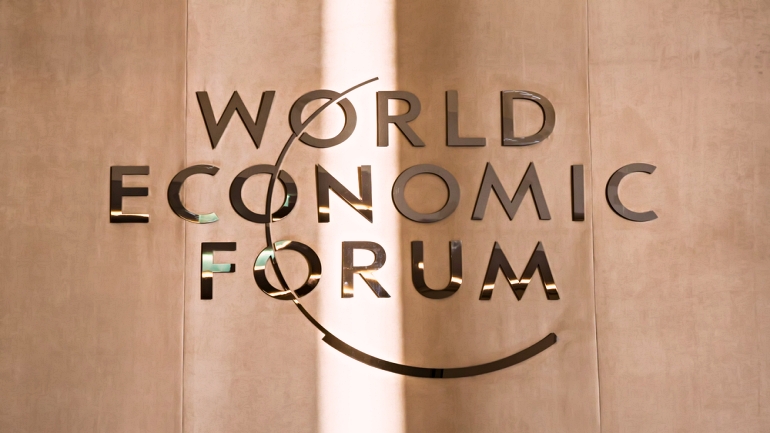GSMA welcomes China Mobile, China Telecom, and China Unicom to the Open Gateway initiative, aiming to enhance services and boost 5G connectivity through API-driven single access points. Collaboration between operators, developers, and cloud providers promises new opportunities and transformative benefits.
The European Commission has approved a joint venture founded by several of Europe’s leading telecommunications providers, including Deutsche Telekom, Orange, Telefónica and Vodafone. The goal of this partnership is to create a revolutionary type of digital advertising platform that will offer a technology solution for digital advertising, while putting privacy first. The holding company, which will be headquartered in Belgium and managed independently, will include a 25% ownership position from each of the major telecom companies. The platform was created with the General Data Protection Regulation (GDPR) of the European Union in mind, and it has already undergone successful testing in Germany. The platform will be made accessible to any operator in Europe. To activate messages from marketers via publishers, consumers must explicitly opt-in to the new platform. The only item communicated is a “pseudo-anonymous digital token” that cannot be reverse-engineered. With improved transparency, protection and supervision over…
Telstra to decommission over 160 5G sites More than 160 5G mobile infrastructure facilities will be shut down by Telstra. The local competition authority expressed worries that the installations were set up to obstruct and stop Optus, a competitor carrier, from deploying 5G services. Months after The Australian Financial Review revealed that Optus had complained to the Australian Competition and Consumer Commission (ACCC) about the sites, Telstra has accepted an enforceable promise to deregister them. Using the mostly untapped 900 MHz range, Telstra is said to have registered 315 new sites in January, mainly in major cities and rural regions. Read more at: https://tinyurl.com/2pnvk38t KDDI to compensate consumers for network outages A month ago, KDDI had its worst network outage ever, rendering voice and internet services unavailable to millions of Japanese consumers for nearly the entire weekend. KDDI statistics show that the outage prevented more than 7.65 million users from…
The US Federal Communications Commission (FCC) has given AST SpaceMobile, a five-year-old company located in Midland, Texas, permission to test a satellite that has the potential to deliver cellular broadband access for smartphone users in the US and throughout the world. According to the business, it is developing the first and only space-based cellular broadband network that will be immediately accessible by regular mobile phones. SpaceMobile, the company’s proposed network, intends to provide 4G/5G access to everyone on the world, on land, at sea, and in the air. No matter where they are, mobile customers will be able to seamlessly roam from terrestrial networks to the space-based network. AST SpaceMobile is launching BlueWalker 3, a test satellite meant to interact directly with mobile phones using 3GPP standard frequencies. The FCC has granted the business an experimental license for BlueWalker 3 space-to-ground testing in the United States. At least…
Cellcom and Voipfuture expanding their cooperation In addition to the currently provided monitored business voice services, Voipfuture, a supplier of a unique carrier-grade, dual-visibility voice service quality monitoring and analytics solution, stated that it has completed the deployment of its Qrystal monitoring system in Cellcom’s IMS core. Since 2018, Cellcom has been using Qrystal to monitor enterprise customer voice services and the organization will now use Qrystal to ensure voice quality for both individual and business users. Read more at: https://tinyurl.com/5b2zt6jf Curious Thing to scale its solution with Vonage Curious Thing, an Australian voice-based conversational AI provider, is adopting the Vonage Communication Platform to grow its products and improve customer experiences. This will be achieved through automated and AI-enabled proactive client interaction according to Vonage, a worldwide supplier of cloud communications. Curious Thing users may now connect at scale, across regions and channels, using a mix of Curious Thing and…
Google to use its own chips for the new Pixel phones Google has announced that its next Pixel smartphones will be available in the fall, powered for the first time by an in-house developed chip. Tensor, Google’s first mobile system on a chip, will be used in the Pixel 6 and Pixel 6 Pro. Tensor is a single chip that integrates a set of processing units and enhances computational capacity in an energy-efficient manner. Google has not revealed who will manufacture the chips for the new Pixel phones. Read more at: https://tinyurl.com/xsprb7ap Lumen to sell its ILEC assets Lumen Technologies announced that it has entered an agreement to sell its Incumbent Local Exchange Carrier (ILEC) business in 20 states, including its consumers, small business, wholesale, and mostly copper-served enterprise customers and assets, to funds managed by Apollo Global Management affiliates for $7.5 billion. Lumen will maintain its ILEC assets in…
Softbank invests $700m in Sinch The Japanese operator Softbank has invested heavily in the Swedish software company Sinch. According to Sinch, it will use the profit to finance further mergers and acquisitions. The Japanese company acquired a portion of the newly issued shares in Sinch, as well as some existing ones, from various major shareholders. The total share expenditure amounted to approximately $698.5 million. Sinch said that it will use the proceeds from the shares primarily for beef up its financial flexibility for undertaking new acquisitions. Sinch announced two takeovers, one of Brazil’s CRM Wavy for $119 million, as well as the SAP Digital Interconnect deal, which was a cash and debt-free transaction valued at approximately $270 million. Read more at: https://tinyurl.com/y5wgysrb Telefónica recently deployed nodes in Seville, Spain Telefónica has for the third time deployed edge nodes in its home country of Spain, recently launching this infrastructure in Seville.…
Apple unifies its app stores by extending the universal purchase option to Mac apps Apple has added the ability for its app developers to sell their cross-platform apps as one universal purchase, including apps that run on macOS. Consumers will just pay once for an app that works across devices such as iPhone, iPad, Apple TV and/or Mac. Developers can choose to create a new app for these platforms using a single app record in the App Store Connect or add platforms to their existing app record. In preparation for the changes, the App Store categories will be unified across the iOS App Store and Mac App Store, to make the apps more discoverable. Apple said that support for universal purchase will launch in March 2020. Read more at https://tinyurl.com/txqz6al Israeli B2B blockchain startup Clear banks $13m in series A funding Blockchain settlement startup Clear has raised USD 13 million in a Series A round.…
The World Economic Forum Centre for Cybersecurity, in cooperation with leading Internet service providers (ISPs) and multilateral organizations around the world, have developed new Internet security principles to help protect up to one billion consumers in 180 countries. According to the World Economic Forum’s Global Risks Report 2019, the impact of indiscriminate malicious activity on the Internet can be significant and will carry an estimated global price tag of USD 6 trillion in 2021. The new cybersecurity principles have been endorsed by BT, Deutsche Telekom, Du Telecom, Global Cyber Alliance, Korea Telecom, Proximus, Saudi Telecom, Europol, Singtel, Telstra, Internet Society, and the ITU. It is stated that ISPs are a critical community that have the ability to protect consumers against cybersecurity threats and therefore have a significantly positive impact on their safety. Amy Jordan, Delivery Lead, Platform for Shaping the Future of Cybersecurity and Digital Trust, World Economic Forum, said, “Cybersecurity…
Six global carriers form a group for MEC, 5G interoperability Verizon, Vodafone, America Movil, KT Corporation, Rogers Communications, and Telstra have joined forces to form the first-of-its-kind cooperation, the 5G Future Forum. The world’s leading telecoms and technology service providers will work together to develop interoperable 5G specifications and mobile edge computing across key geographic regions, including the Americas, Asia-Pacific and Europe. According to the statement from the carriers, they will “develop public and private marketplaces to enhance developer and customer access to 5G, and will share global best practices in technology deployment.” Read more at: https://tinyurl.com/u3vdooh Google acquires no-code app development platform AppSheet Google has announced the acquisition of AppSheet, a no-code enterprise app development platform that allows developers without extensive programming knowledge to collect rich data, fill up apps with AI, or automatically move data. This works by extracting data from a spreadsheet, database or form, and using the…













